CarEdge saved me over 4,500 dollars on a brand new Honda Pilot. I can't say thank you enough.
Price intelligence
Find a wide range of vehicle listings with market insights on new and used listings near you.


Help us personalize your CarEdge experience — it only takes a second.
Your answers help us personalize your CarEdge journey — we’ll follow up with tips and next steps that match your buying timeline.

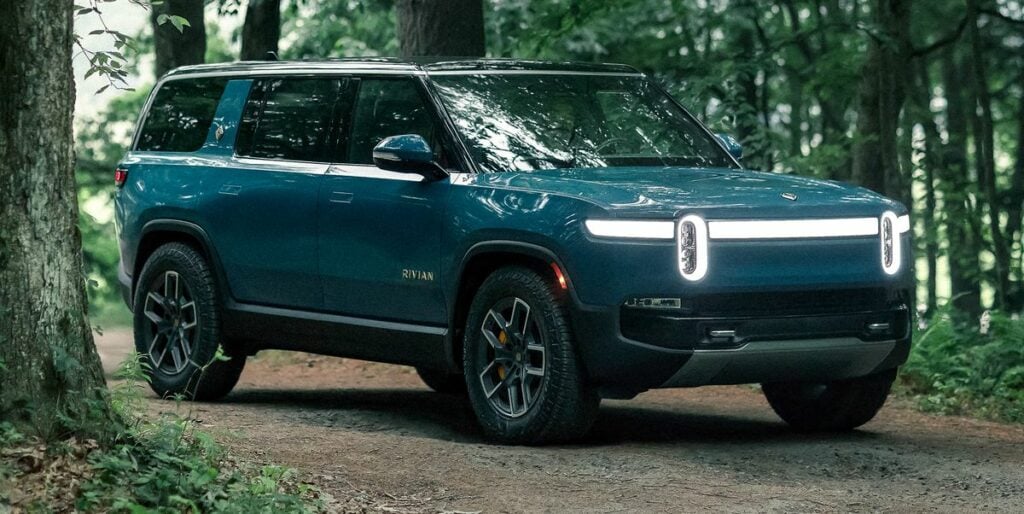
If you’re thinking about hauling the kids off to school with zero emissions, today’s EVs offer more range, faster charging and greater fuel savings. The best electric cars and SUVs for families are available in a wide range of options to meet your needs, and an even wider range of price points. These are the best electric crossovers and SUVs on sale in 2024.
If you need space for four, five, or maybe six people (plus those furry friends), these 3-row electric SUVs are built for you.

Reviewers absolutely LOVE the new Kia EV9. As the first mainstream 3-row electric SUV to hit the American market, the EV9 was highly anticipated. We can confirm that it has been worth the wait. Step inside this full-size SUV, and you’ll immediately note the spaciousness and luxurious feel of this premium-feeling Kia. This one is worth a test drive.
Price: $56,395 – $75,395
Range: 230 – 304 miles
Charging (public fast charger): can add 200 miles in 18 minutes
Passenger volume: 159 cubic feet (three rows, seats 6)
Cargo volume behind second row: 44 cubic feet
Total cargo volume: 82 cubic feet
NHTSA safety rating: Not Rated (5-Star Euro Rating)
See Kia EV9 new and used listings with local market data.

Rivian is just beginning to ramp up production and sales of the Rivian R1S, the full-size electric SUV companion to the R1T electric truck. The 2024 Rivian R1S is a blend of luxury and off-road capability. This 3-row EV is made in America, at a converted manufacturing facility in Normal, Illinois. We can only recommend this great vehicle if you live within a reasonable distance of one of Rivian’s service centers. If you end up needing service, you don’t want to pay for a long-distance tow truck!
Price: Starting at $74,900
Range: 316 miles
Charging (Public fast charger): can add 140 miles in 20 minutes
Passenger volume: (three-row SUV)
Cargo volume behind second row: 46.7 cubic feet
Total cargo volume: 104.7 cubic feet
Safety rating: Top Safety Pick+ by IIHS
Learn more about the Rivian R1S.
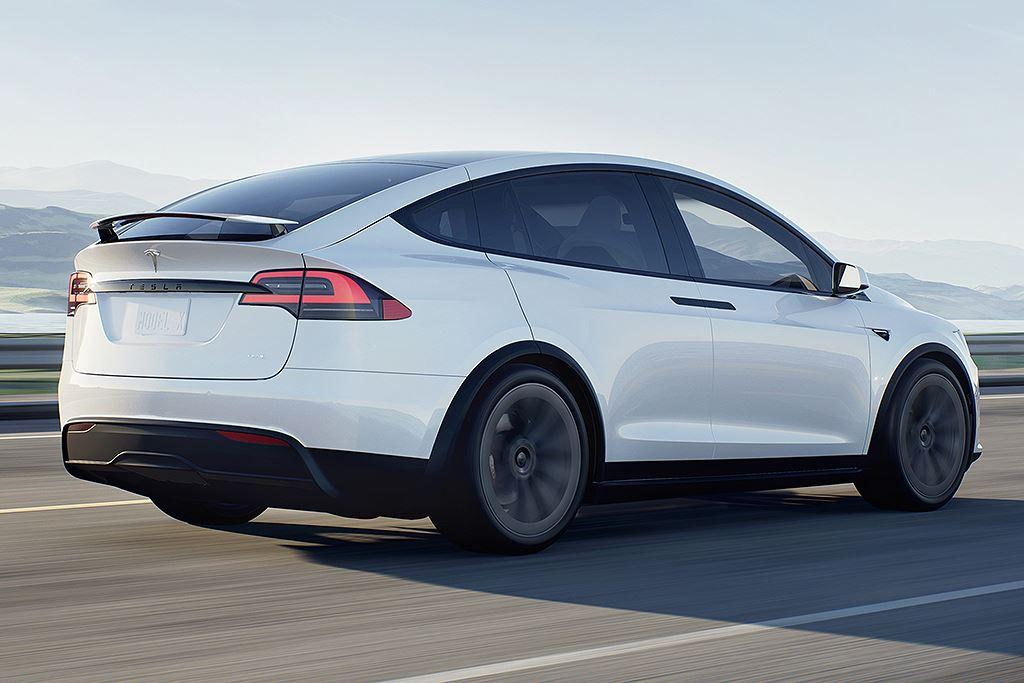
With gull-wing doors and a massive glass roof, there’s no hiding the fact that the Tesla Model X is a luxury SUV. In 2024, the Model X has seen multiple price cuts, and now starts around $80,000.
Price: $79,990 to $120,000+
Range: 351 miles
Charging (Public fast charger): can add 200 miles in 15 minutes
Passenger volume: N/A (three rows)
Cargo volume behind second row: 42.5 cubic feet
Total cargo volume: 92.3 cubic feet
Safety rating: 5 stars from Euro NCAP
See Tesla Model X new and used listings.
These electric crossover SUVs are the highest-rated, most-loved EVs for families today. Although they lack a third row, they’re plenty big enough for most families of four. Spaciousness, pricing, range and charging speeds vary from one electric model to another. We’ve also included NHTSA safety ratings if they’re available.

The Model Y is the best-selling electric vehicle in America. Model Y prices have fallen 20% from 2022’s highs. It’s now possible to buy a Model Y for well below $50,000 with the point-of-sale EV tax credit. Although it’s known for autonomous driving, the full capability (known as FSD) is a $15,000 package.
Price: $49,990 to $74,990
Range: 279 to 330 miles
Charging (Public fast charger): can add 200 miles in 15 minutes
Passenger volume: 106 cubic feet
Cargo volume behind second row: 26.6 cubic feet
Total cargo volume: 72 cubic feet
NHTSA safety rating: 5 stars
See Model Y new and used listings.
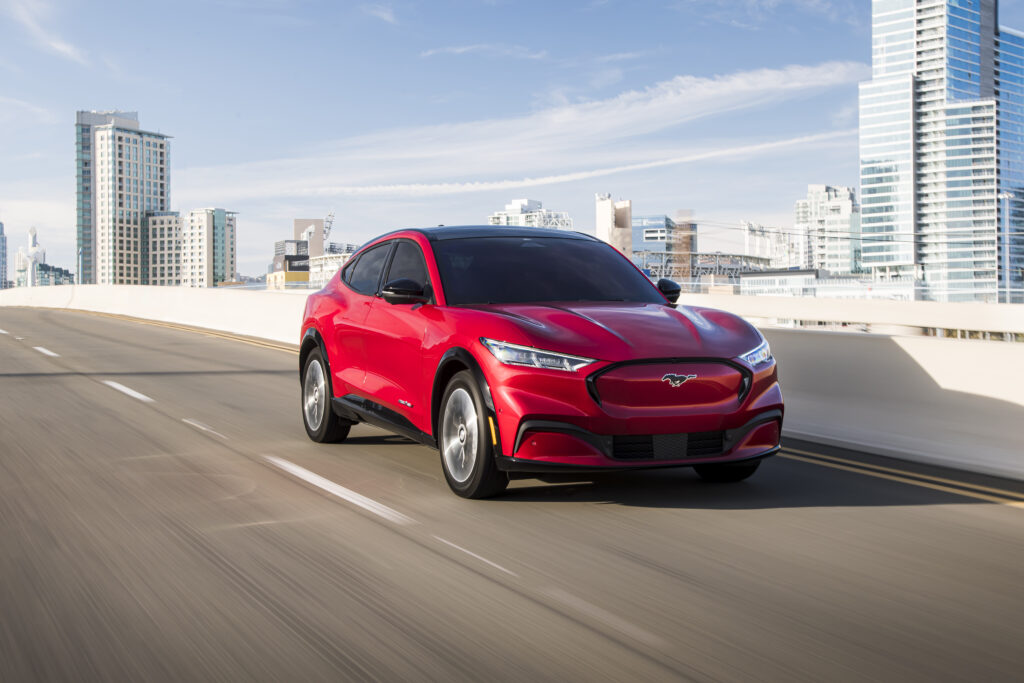
Ford’s first serious EV is very popular among small families and speed freaks alike. If the Mustang brand has a special place in your heart, this just might be the EV for you.
Price: $45,995 to $63,575+
Range: 224 to 312 miles of range
Charging (Public fast charger): can add 120 miles in 20 minutes
Passenger volume: 104.5 cubic feet
Cargo volume behind second row: 29.7 cubic feet
Total cargo volume: 59.7 cubic feet
Safety rating: IIHS Top Safety Pick
See Mustang Mach-E new and used listings.

I can confidently say that the IONIQ 5 is a great family car, and that’s because my wife and I haul our own kiddo around in this segment-bending electric crossover with hot hatch flavors. The IONIQ 5 has won many awards, including Car and Driver’s 2022 EV of the Year. It charges VERY fast, and that’s what I love most about the car.
Price: $40,925 to $57,400+
Range: 220 to 303 miles
Charging (Public fast charger): Adds 200 miles of range in 20 minutes
Passenger volume: 106.5 cubic feet
Cargo volume behind second row: 27.2 cubic feet
Total cargo volume: 59.3 cubic feet
Safety rating: Top Safety Pick Plus from IIHS
See Hyundai IONIQ 5 new and used listings.
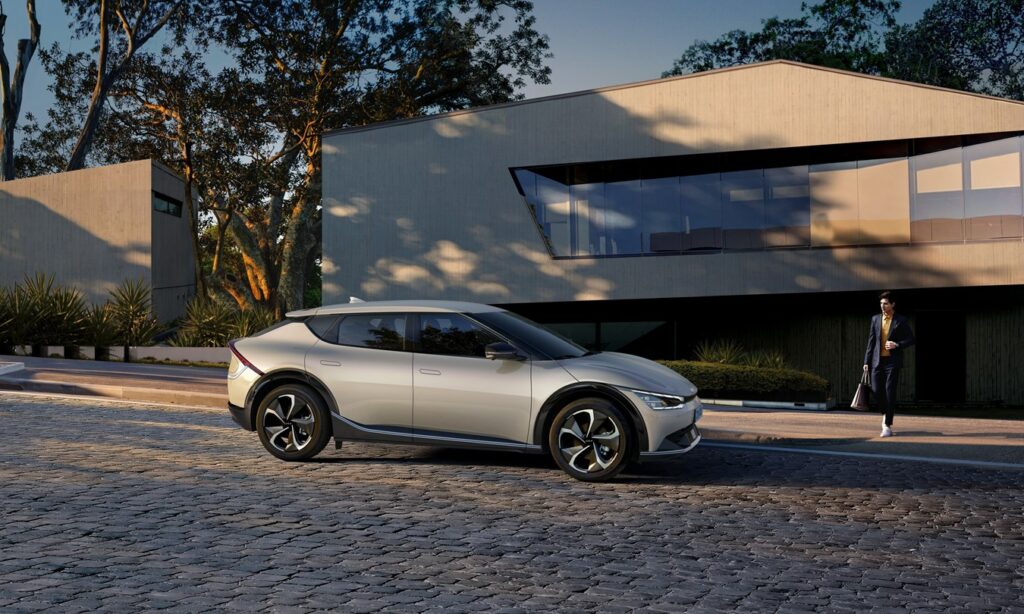
The spaceship-styled EV6 is Kia’s version of the Hyundai IONIQ 5, which shares the e-GMP electric powertrain. The Kia EV6 has slightly less passenger and cargo space than the Hyundai, but it’s better range and equally fast charging make it an obvious feature on this list of best electric cars for families.
One thing to bear in mind: most EVs, including the EV6 and IONIQ 5, have a flat floor, meaning that there’s a bit more interior space than it would appear. The best thing you can do is check one out in person!
Price: $43,920 to $61,600+
Range: 274 to 310 miles
Charging (Public fast charger): Adds 200 miles of range in 20 minutes
Passenger volume: 103 cubic feet
Cargo volume behind second row: 24.4 cubic feet
Total cargo volume: 50.2 cubic feet
Safety rating: In Europe, the EV6 earned 5 stars
See Kia EV6 new and used listings.
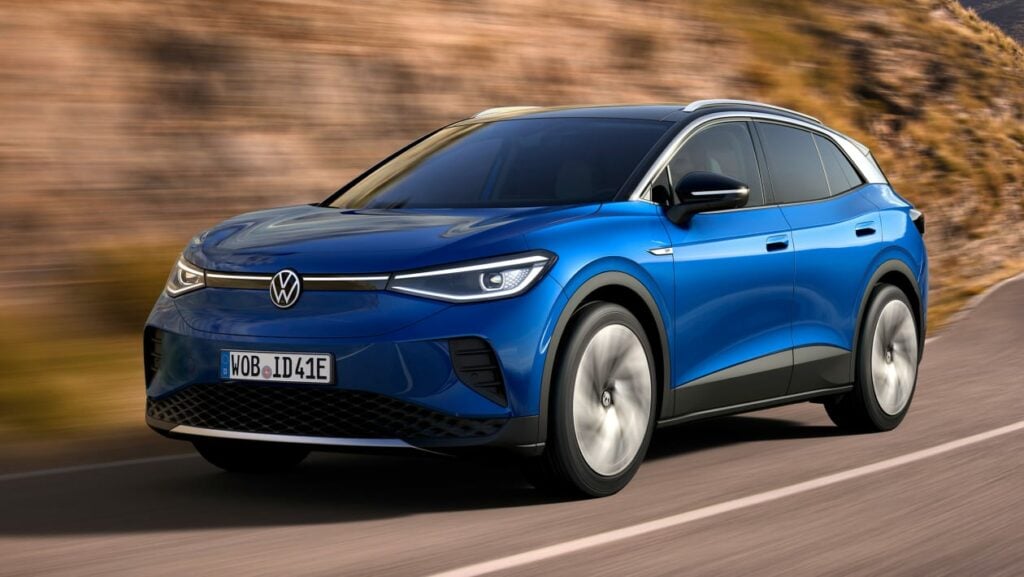
We have great news for those in search of an affordable and capable EV that qualifies for the federal tax credit. The ID.4 is now made in Tennessee at Volkswagen’s Chattanooga plant! The newest American-made EV is equipped with decent range, okay charging, and a comfortable interior that’s designed for families. However, don’t expect Tesla-level infotainment. The ID.4 is best for those who are content with the simpler things in life.
Charging speeds are merely okay, but the 2024 model year gets a decent improvement.
Price: $38,790 to $55,000
Range: 208 to 275 miles
Charging (Public fast charger): Adds up to 190 miles of range in 30 minutes
Passenger volume: 99.9 cubic feet
Cargo volume behind second row: 30.3 cubic feet
Total cargo volume: 64.2 cubic feet
Safety rating: Top Safety Pick Plus
See Volkswagen ID.4 new and used listings.
The Inflation Reduction Act eliminated the original EV tax credit and replaced it with a completely revised tax credit. For vehicles that qualify, up to $7,500 in tax credits are available. However, the incentive is based on battery sourcing, which will be determined by the automakers. Income limits restrict buyer eligibility, too. See the full details on qualifying models here.
There’s also a used EV tax credit for the first time, but a price cap of $25,000 eliminates every single family EV on this list.
Generous state and local incentives may make the switch to an EV much more affordable, depending on where you live. See the most generous state-level EV incentives, and check with the DSIRE clean energy incentive database to find more incentives for your specific location.
Which family-size electric car are you considering? Let us know in the comments, or better yet join the conversation at our CarEdge Community forum.
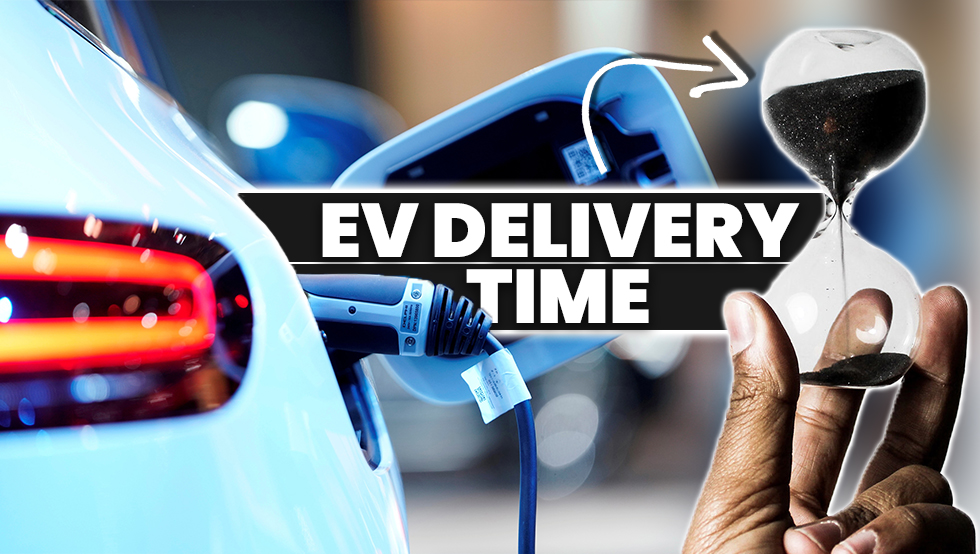
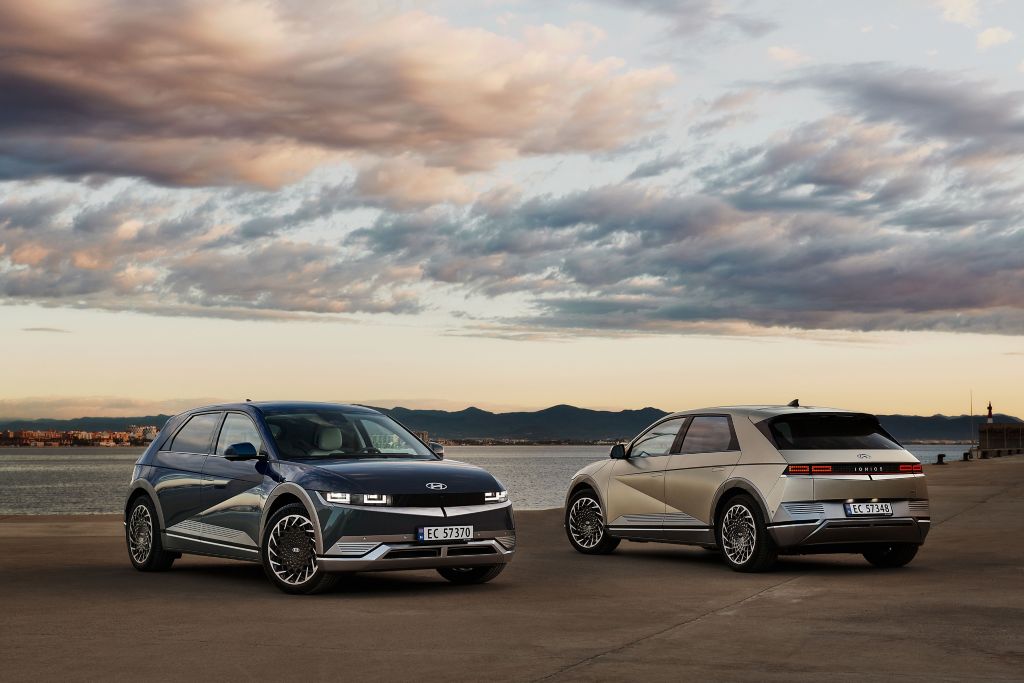
(Updated for Summer 2022)
As anyone who’s fallen head over heels for one of the many 2022 electric vehicles and clicked that ‘Order’ button can attest, just because you can order an EV in 2022 doesn’t mean you can drive it home this year. This was a problem I faced myself, but I finally broke the code and got a Hyundai IONIQ 5 at MSRP (here’s how).
Soon after I began my online car search, it became clear that if I wanted a brand-new vehicle, my options were limited by availability. To make the most of the situation, I thought I’d share what I’ve learned about the availability and estimated delivery times for EVs on the market today. Here’s what we know as we kick off the new year.
Note: These are fully-electric models that can either be ordered now or purchased at a dealership today. Many more have been announced but are not yet officially available.
| Make | Model | Class | Starting MSRP | Estimated Delivery/Lot Availability* |
|---|---|---|---|---|
| Audi | e-tron | crossover SUV | $65,900 | Available Now |
| Audi | Q4 e-tron | crossover SUV | $43,900 | Available Now |
| Audi | RS e-tron GT | sedan | $103,445 | Available Now |
| BMW | iX | SUV | $88,050 | Mid-2022 |
| BMW | i4 | sedan | $55,400 | Mid-2022 |
| Cadillac | Lyriq | SUV | $62,990 | Late-2022 |
| Chevrolet | Bolt | hatchback | $31,000 | Available Now |
| Chevrolet | Bolt EUV | crossover SUV | $33,500 | Available Now |
| Fisker | Ocean | crossover SUV | $37,499 | 2023 |
| Ford | Mustang Mach-E | crossover SUV | $43,895 | Available Now |
| Ford | F-150 Lightning | truck | $39,974 | 2023-2024 |
| GMC | Hummer EV | truck | $99,995 | Mid-to-late 2022 |
| Hyundai | IONIQ | crossover SUV | $33,245 | Available Now (Discontinued) |
| Hyundai | IONIQ 5 | crossover SUV | $43,650 | Available Now |
| Hyundai | Kona | crossover SUV | $34,000 | Available Now |
| Jaguar | I-Pace | crossover SUV | $69,900 | Available Now |
| Kia | Niro | crossover SUV | $39,990 | Available Now |
| Kia | EV6 | crossover SUV | $42,115 | Available Now |
| Lucid | Air | sedan | $77,400 | Mid-2022 |
| Mazda | MX-30 | crossover SUV | $33,470 | 2022 - CA Only |
| Mercedes | EQS | sedan | $102,310 | Available Now |
| Mercedes | EQB | SUV | ~$55,000 | Late 2022 |
| Nissan | Leaf | hatchback | $27,400 | Available Now |
| Nissan | Ariya | crossover SUV | $47,125 | Late 2022 |
| Polestar | Polestar 2 | sedan | $45,900 | Available Now |
| Porsche | Taycan | sedan | $82,700 | Available Now |
| Rivian | R1T | truck | $67,500 | 2023 |
| Rivian | R1S | SUV | $70,000 | 2023 |
| Subaru | Solterra | crossover SUV | $46,220 | Mid-to-late 2022 |
| Tesla | Model S | sedan | $94,990 | Late 2022 - 2023 |
| Tesla | Model 3 | sedan | $46,990 | Mid-to-late 2022 |
| Tesla | Model X | SUV | $104,990 | 2023 |
| Tesla | Model Y | crossover SUV | $62,990 | Late 2022 - 2023 |
| Toyota | bZ4X | crossover SUV | $43,215 | Mid-to-late 2022 |
| Volkswagen | ID.4 | crossover SUV | $40,760 | Mid-2022 |
| Volvo | XC40 Recharge | crossover SUV | $55,300 | Available Now |
| *For a vehicle ordered in May 2022, unless there's existing dealership supply. |
A few things might stand out to you on this list. Not a lot of options are available if you need a new vehicle right now. VW Group’s new EVs are available at many dealerships, although there are reports of major dealer markups. It’s quite easy to find EVs of the previous generation on dealer lots. Think Kia eNiro, Hyundai Kona EV, Nissan Leaf and the like.
The vast majority of 2022 electric vehicles are crossovers. No surprise there given the sales trends over the past decade. Honda doesn’t have a single EV arriving in the North American market until the 2024 Prologue electric SUV. That is surprising considering the popularity and good reputation of the brand. What will it take for automakers to catch up to demand? An end to the chip shortage would be a great step in the right direction. There’s also the supply versus demand factor. Ford, Rivian, Tesla and VW are all swamped with orders well into 2022, and even into 2023. All except Tesla are EV newcomers who are facing the same production ramp-up struggles that Tesla just barely survived a few years ago. We’ll update this page regularly as more information becomes available, so save it to your bookmarks!
Did we miss anything? Let us know in the comments below, or shoot an email to [email protected].

If America is to go electric as the automakers claim, access to EV charging stations will have to grow exponentially in just the next few years. As it stands today, there are 63,000 public charging stations, but only 17,460 are fast chargers. That works out to just 37 charging ports per 100,000 Americans. Industry experts estimate the US will need more than 100,000 public fast chargers for the 22 million EVs that are expected to hit American roads by 2030.
Most charging is done at home, but public chargers are an important piece of the puzzle. They are essential for interstate travel and road trips. Will hitting the road in an EV ever be as simple and hassle-free as it is in a combustion vehicle? Here are the latest developments in the world of EV charging access.
President Biden, the US Department of Transportation, and the US Department of Energy announced the allocation of $5 billion over five years for the establishment of a National EV Charging Network. The funding is made possible by the Bipartisan Infrastructure Law, which was signed into law in November of 2021.
The chief goal of the charging funds is to create a network of EV charging stations along the Interstate Highway System. The total amount available to states in 2022 is $615 million, but states must submit an EV Infrastructure Deployment Plan before they can access these funds. A second, competitive grant program designed to further increase EV charging access in locations throughout the country, including in rural and underserved communities, will be announced later this year.
Learn more about how much each state is receiving to build electric car charging stations here.
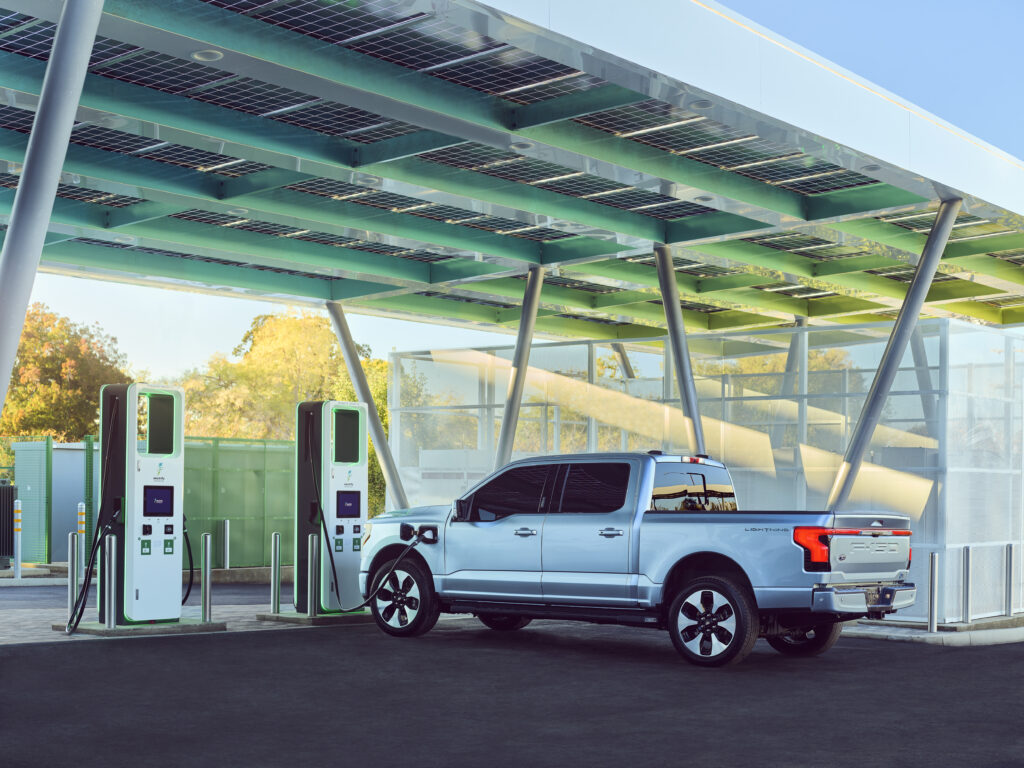
Although EVs only made up 5% of US passenger vehicle sales through mid-2021, a recent survey found that 39% of Americans say they are likely to purchase an EV for their next vehicle. On top of that, OEM executives expect half of all sales to be electric in 2030, just eight years ahead. Taken together, this points towards a future where EVs are no longer fringe models with limited audiences; EVs are going mainstream.
Over 80% of charging is done at home at very affordable residential rates. The remainder is at public charging stations that vary widely in pricing. In the states that lead in EV ownership, existing charging stations often have long wait times during periods of busy travel. The need for more public charging presents a business opportunity just waiting to be taken advantage of, and now the big utilities are taking notice.
Just this month, the Edison Electric Institute (EEI), an association representing US utilities, announced a monumental initiative to combine the forces of 51 investor-owned electric companies, one electric cooperative, and the Tennessee Valley Authority. This new coalition is a coordinated effort to install thousands of fast charging ports along major U.S. travel corridors by the end of 2023. The coalition members are committing $3 billion of their own money to bring fast chargers online over the next two years.
The 2021 bipartisan infrastructure package passed by congress allocates $7.5 billion for the expansion of charging to 500,000 charging plugs nationwide. The administration announced plans to designate highways as “corridor-ready” for electric vehicles, meaning charging stations are located no more than 50 miles apart and no more than five miles off the highway.
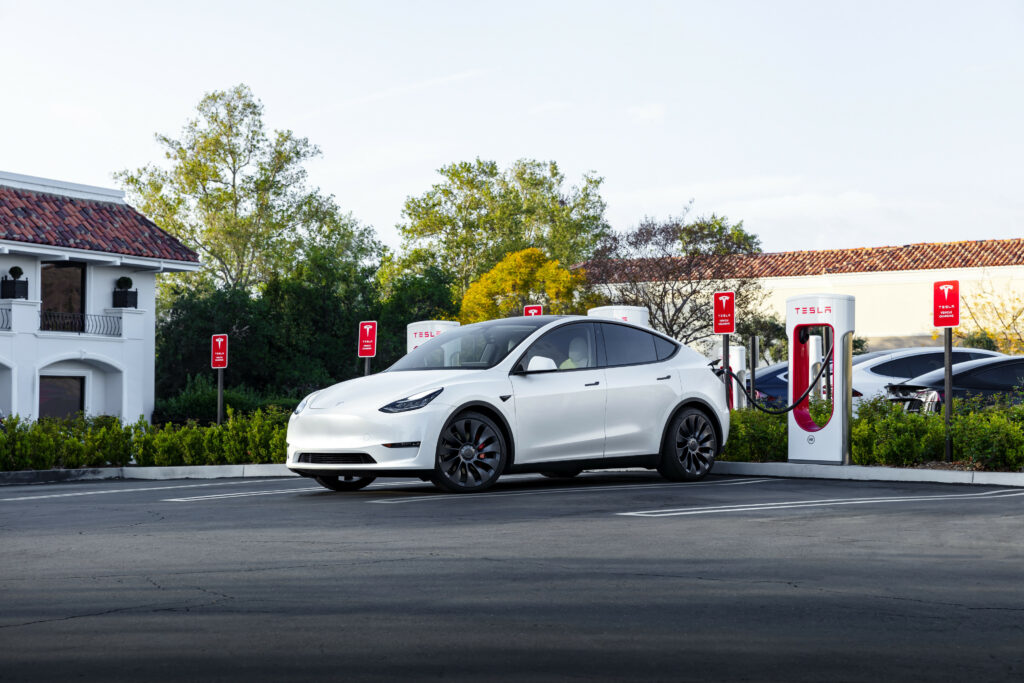
For most of the last decade, Tesla’s Supercharger network was the only nationwide fast-charging network for EV owners. It was long rumored that Tesla was on the verge of opening select Supercharger locations to all EV owners, but it appears that North American Tesla Superchargers will remain a walled garden for now. Tesla has already opened Supercharger access to all in France, The Netherlands, and Norway. Non-Teslas pay a higher price for charging, and Tesla says that will fund the continued growth of the network.
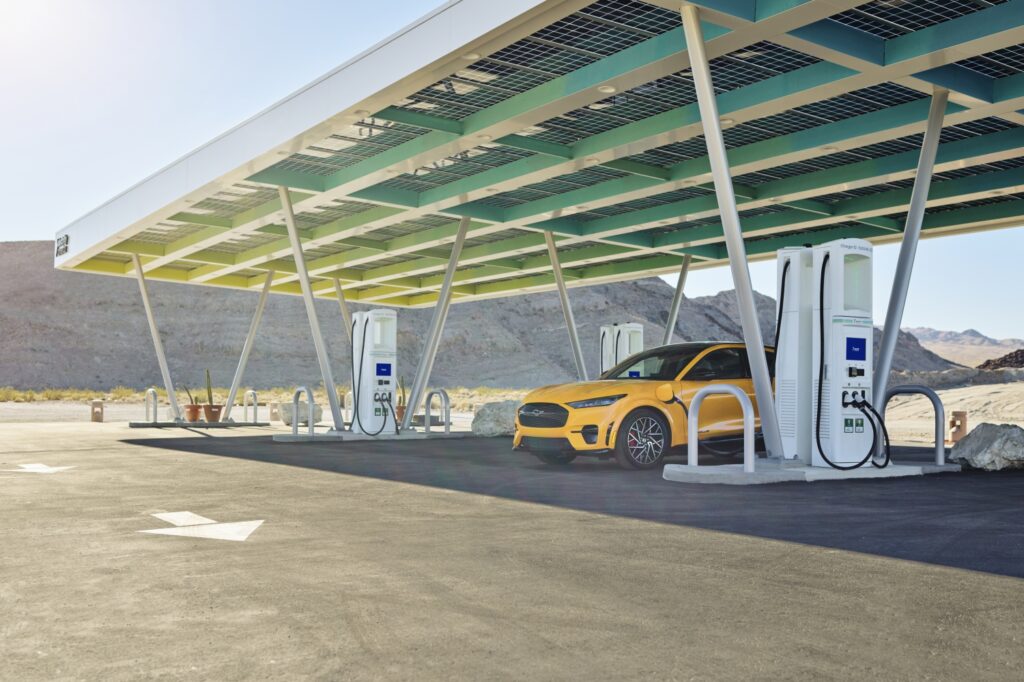
One outcome of the Volkswagen dieselgate debacle was the creation of Electrify America, a VW-funded nationwide charging network in the US. After a rocky start plagued by unreliability and low use, things are looking up for EA. This past summer, EA announced their “Boost Plan” to more than double their current EV charging infrastructure in the United States and Canada. At the end of 2021, EA has completed nearly 800 charging stations with a total of 3,500 charge ports. By the end of 2025, EA plans to have more than 1,800 fast charging stations and 10,000 individual chargers installed.
The all-new Volkswagen ID.4 electric crossover comes with three years of free fast charging at Electrify America stations. Hyundai and Ford are also offering limited free charging incentives for their EVs. As the networks expand, the value of these free charging incentives will grow.
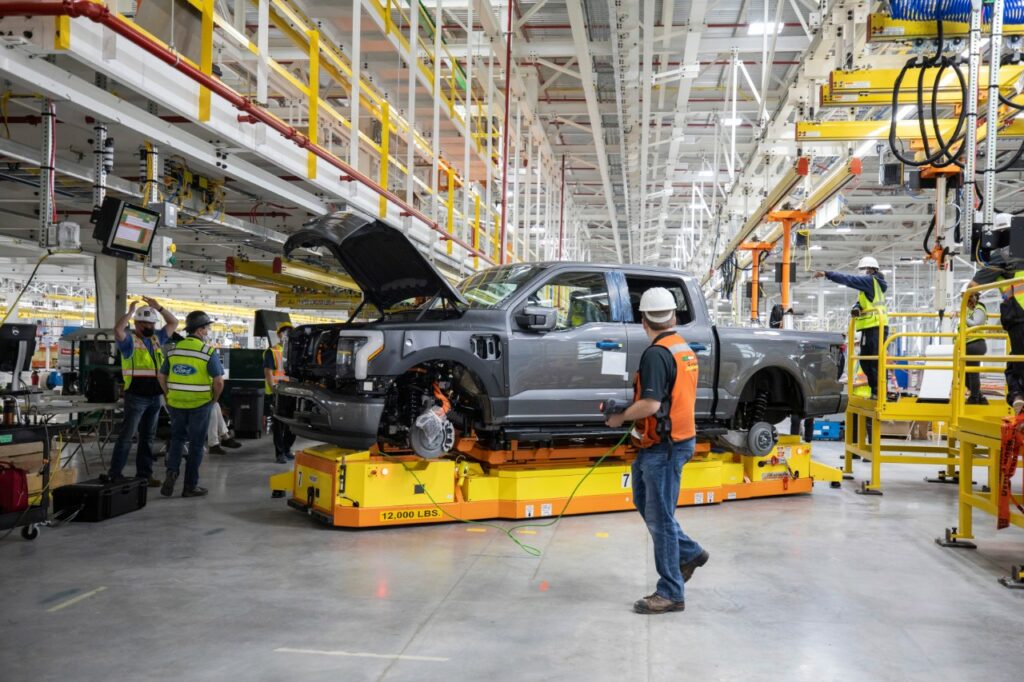
Legacy automakers and EV startups have plans to make public charging easier for their customers. GM announced Ultium Charge 360, a plan that will integrate charging networks for seamless use with all GM vehicles. They’ve established partnerships with EVgo, Blink, ChargePoint and other big names in North America. Furthermore, GM’s new Dealer Community Charging Pro will see dealerships playing an active role in bringing 40,000 level 2 chargers to underserved communities, including rural and urban locations.
Ford’s BlueOval charging network makes plug-and-charge possible for the Mustang Mach-E and future EV models, a nod to Tesla’s plug-and-charge popularity. Ford says that they want charging an EV to be as simple as stopping at a gas station.
By the end of 2023, Rivian’s Adventure Network of chargers will have 3,500 fast chargers installed at 600 sites in North America. Rivian’s brand targets outdoor enthusiasts and overlanding types, so the new network will cater to EV owners who venture off the beaten path. At first, the Rivian Adventure Network will be exclusive to Rivian owners, but the company says they will open it up to other EV brands shortly after. This is a big deal for EV owners looking for zero-emissions wilderness adventures, especially considering that the much-hyped Subaru Solterra all-wheel drive EV barely makes it 220 miles on a charge.
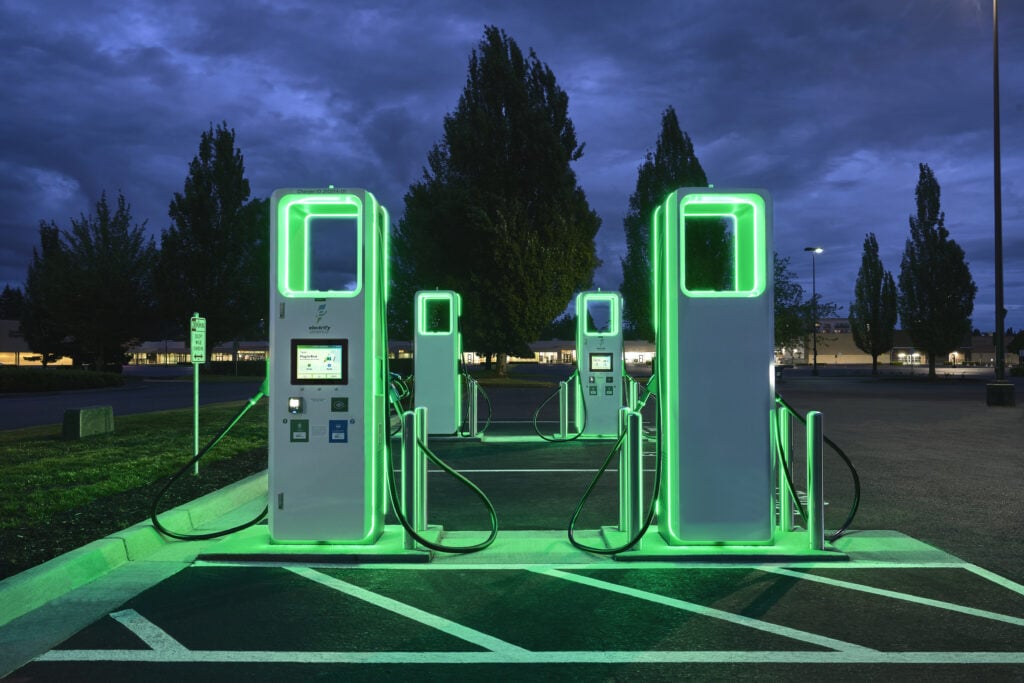
The short answer is no, not for decades, if ever. However, more and more gas stations are adding fast chargers to their parking lots. Sheetz, a popular gas station chain in the East, has been the site of many Tesla Superchargers. In Maryland, one gas station ditched gas entirely for EV charging stations. The new infrastructure bill’s $7.5 billion for EV charging will bring chargers to more gas stations, truck stops and interstate rest areas. The Department of Energy already keeps track of every fast charging station in the nation, and even has a neat map of stations to explore.
Retailers are seeing the benefits of hosting EV charging. Most Electrify America stations are located in Walmart or Target parking lots in close proximity to dining and shopping. Movie theaters and shopping malls often offer free charging for customers. This is a trend we expect to continue, bringing convenience and the occasional free charge to EV owners.
EV charging stations are great for highway adventures, but it’s important to remember that EV owners who rely on public charging will spend far more on charging than those who charge mostly at home. EV drivers who pay for public charging will see a much higher total cost of ownership, possibly even approaching that of a combustion vehicle.
More EV models are making their debut in 2022, and almost all of them charge at over 150 kW. This is great for those wanting to go electric yet dreading long waits at a charger. The next two years will transform the experience of EV ownership in America. With so many new fast chargers coming online and even better models to choose from, EV technology just might be maturing right as American infrastructure catches up with demand.